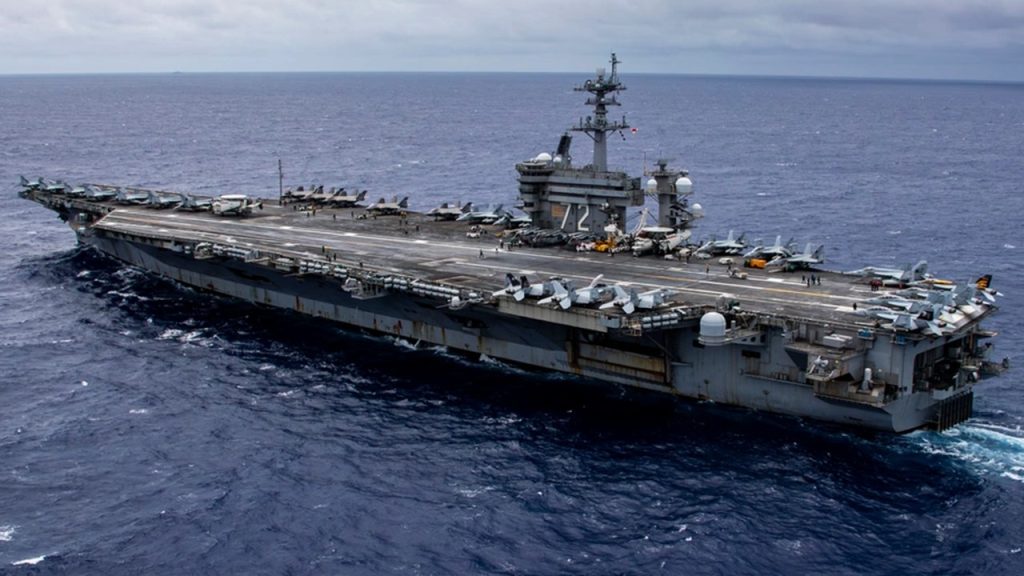The Pentagon has announced that two U.S. Navy carrier strike groups, the USS Theodore Roosevelt and USS Abraham Lincoln, have been ordered to remain in the Middle East to support Israel’s defense against threats from Iran and its regional partners and proxies. This decision comes in response to Hezbollah’s announcement that it had launched hundreds of rockets and drones at Israeli military positions. In retaliation, the Israeli military deployed around 100 fighter jets to eliminate Hezbollah rocket launcher barrels aimed at Israel. Secretary of Defense Lloyd Austin spoke with Israeli Minister of Defense Yoav Gallant to reiterate the United States’ support for Israel’s right to defend itself and commitment to helping negotiate a ceasefire and hostage-release deal.
The presence of the two carrier strike groups in the region is part of the U.S.’s support for Israel’s defense and its efforts to combat threats from Iran and its allies. The USS Theodore Roosevelt and USS Abraham Lincoln are currently in the Gulf of Oman, with the USS Abraham Lincoln arriving in the Middle East on Wednesday and the USS Theodore Roosevelt having been there since June. The length of time that both strike groups are expected to remain in the region was not specified by the Pentagon spokesperson when asked. In a meeting with U.S. Chairman of the Joint Chiefs of Staff Gen. Charles Q. Brown, Israeli Minister of Defense Yoav Gallant warned that Iran’s aggression has reached an all-time high.
The decision to keep the two carrier strike groups in the Middle East signals the United States’ commitment to supporting Israel and defending against threats from Iran and its regional partners. The Israeli military’s response to Hezbollah’s attacks demonstrates the ongoing tensions in the region and the need for continued vigilance and readiness. Secretary of Defense Lloyd Austin’s conversation with Israeli Minister of Defense Yoav Gallant emphasizes the U.S.’s determination to stand by Israel’s right to defend itself and work toward a ceasefire and hostage-release deal.
The presence of the USS Theodore Roosevelt and USS Abraham Lincoln in the Gulf of Oman highlights the strategic importance of the region and the ongoing security concerns. The decision to order the carrier strike groups to remain in the Middle East reflects the U.S.’s prioritization of supporting Israel and protecting against threats from Iran and its allies. The lack of a specified duration for the strike groups’ deployment underscores the fluidity of the situation and the need for flexibility in response to evolving threats. Israeli Minister of Defense Yoav Gallant’s warning about Iran’s aggression serves as a reminder of the challenges facing the region and the necessity of continued cooperation and coordination between the U.S. and its allies.
The ongoing tensions in the Middle East, as exemplified by Hezbollah’s attacks and Iran’s perceived aggression, underscore the need for a coordinated and robust response from the United States and its allies. The deployment of the USS Theodore Roosevelt and USS Abraham Lincoln to the region is a clear demonstration of the U.S.’s commitment to supporting Israel and countering threats from Iran and its regional partners. The decision to keep the carrier strike groups in the Gulf of Oman reflects the seriousness of the situation and the need for ongoing vigilance and readiness. Israeli Minister of Defense Yoav Gallant’s warning about Iran’s aggression highlights the complex and dynamic nature of the security challenges in the region and the importance of continued cooperation and coordination among allies.


